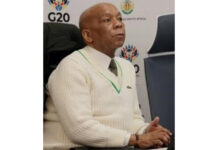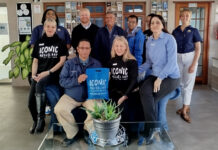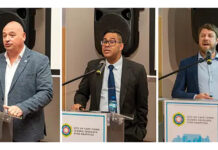The COVID-19 lockdown was just hours old in South Africa when the first reports started coming through in the traditional broadcast media about people breaking the stay-at-home instructions posed by the government to try and slow down the spread of the potentially deadly virus.
From the SABC to as far afield as the UK and the US, the reporters filed their stories, and they were not always pretty. On the social media side, Twitter was also full of videos and pictures of people going about their business, and not staying home as President Cyril Ramaphosa had ordered. Ensuring that informal businesses and smaller shops remain closed, and that people remain at home and practise social distancing when they do run allowed errands, is proving to be a challenge in some of the country’s poorer areas especially.
It is true that there are real logistical factors, especially in poverty-stricken and particularly urbanised areas, which will make staying at home very difficult for residents to practise. And yet it is hard to explain the lack of attempted social distancing – staying a metre and more apart from others – when out and about, for example for necessary groceries.
It seems that there are two sides to lockdown in South Africa – those who are receiving the message from the government, understanding that it is for their own good and abiding by the measures put in place, and those who are ignoring these measures. And with this messaging we find literacy playing a tremendously important role.
Marinda Clack, executive marketer at adult training solutions facilitator, Triple E Training, explains, “If we look at the challenges people face in their daily lives and the workplace, with the focus on reading and listening with understanding, it is no wonder that so many still do not understand the seriousness of this virus. Employers might have tried to educate and inform their employees on the Coronavirus, but it does not mean that their employees had a full understanding. People often rely on what they hear from friends or family, and in many cases it’s not the correct information they receive.
“Many South Africans do not have much exposure to the news except via daily newspapers and posters, and perhaps radio or television broadcasts, but this will not be of value where there are reading and literacy difficulties.
This has a very clear, potentially negative, impact on society, co-workers and their own health and their families. How can people with low or no literacy skills be expected to understand the concept of social distancing, or that this ‘flu’ is different from what they have traditionally understood to be flu?”
Clack says that reading is a basic fundamental skill, which incorporates the following:
- Forming a meaning through context clues, prior knowledge and word structure.
- Differentiating between fact, persuasion and an informed opinion.
- Comprehending tone and mood.
- Understanding and analysing.
- Re-stating and summarising an idea.
“In short, it means understanding what you are reading,” she clarifies.
“Reading is important in numerous ways and it has a definite impact on us daily. It develops our thoughts, helps with problem solving and creativity, and improves our vocabulary. We gain knowledge and learn new things. Reading expands our way of thinking and, importantly in this current health pandemic, it helps us to deal with challenging situations.”
Education, at any time, is a fundamental human right, maintains Clack. “But now, more than ever, it is our duty and responsibility as employers, co-workers, mentors and teachers to identify those who need help to become competent in reading, as well as listening, with understanding,” she emphasises.
“Our suggestion is, once we in South Africa have come through the lockdown, that organisations swiftly look to implement skills development, bursaries, learnerships and internships. In this way, literacy skills can be shared, in a ripple effect, within families and communities.
“It may not completely solve low literacy levels throughout the country, but this is at least a start, and a step in the right direction. It is vital for business to take skills development and training seriously, and we also remind organisations that – once we are through this frightening health pandemic – the government has signalled its intent, via the Employment Equity Amendment Bill of 2020, to ensure mandatory training of their employees, meaning that companies will have to focus on staff’s training and development.
“We are certainly living through difficult and dangerous times, an unprecedented situation in fact, but we at Triple E Training have been encouraged by the way that President Ramaphosa has quickly embraced measures to try and deal with the spread of the virus. We are hopeful that he and his ministers will be as decisive in uplifting adult education measures once this time is past,” she concludes.
About Triple E Training:
Triple E Training (Pty) Ltd is a unique education and training provider of General Education and Training (GET) and Further Education and Training (FET).
We offer adult training solutions to organisations, individuals and communities. Our products and services include Adult Basic Education and Training (ABET) / Adult Education and Training (AET), Foundational Learning Competence (FLC), Rapid Effective Accelerated Life Long Learning – REALLL (Fundamentals Communication & Mathematics NQF 2 – 4) and Workplace Learnership, amongst others.
- For more information, please visit https://eee.co.za/
CONTACTS
- icomm, Nicola Read, 083 269 2227, nicola@pr.co.za, www.icomm-pr.co.za
- Triple E Training, 011 668 4343, info@eee.co.za, www.eee.co.za















